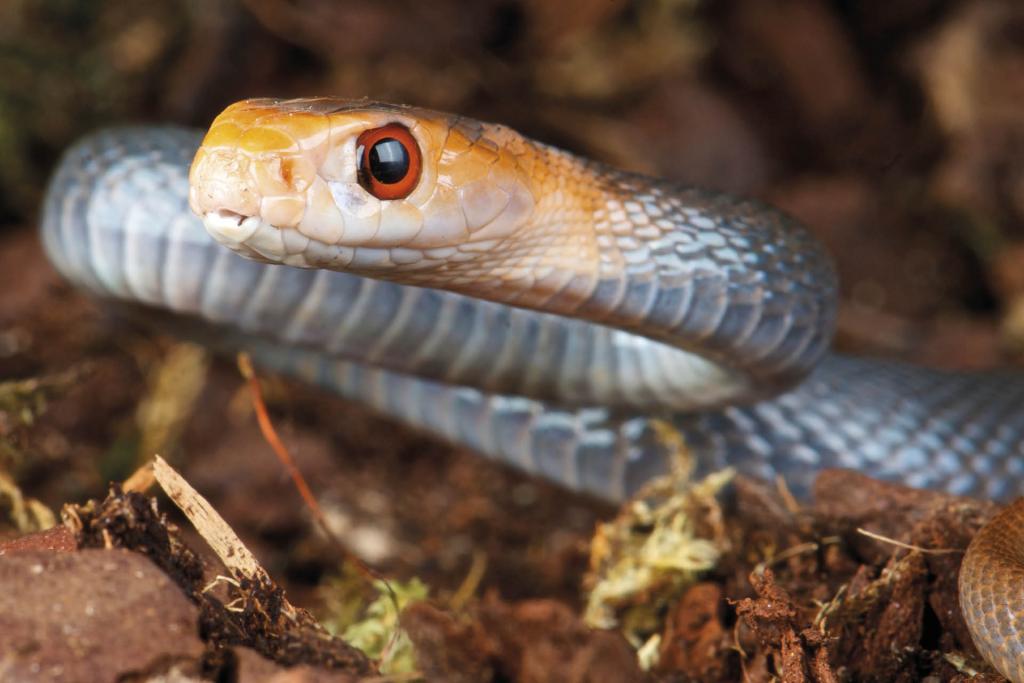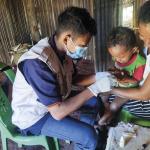Rotary joins the fight against snakebite deaths in PNG
The Rotary Club of Melbourne is supporting life-saving innovation and frontline response through the PNG Snakebite Partnership.
The Rotary Club of Melbourne (RCM), Vic, has thrown its support behind a powerful initiative that is saving lives across Papua New Guinea: the PNG Snakebite Partnership. Formed in 2018, this unique collaboration between government, industry and medical experts aims to tackle what the World Health Organisation (WHO) describes as the most significant tropical disease never discussed as a health issue – snakebite envenoming.
Every year, 2.7 million people globally fall victim to venomous snakebites, with 140,000 estimated fatalities and more than 400,000 survivors left with life-altering injuries.
In PNG, snakebite mortality is believed to be the highest per capita in the world, surpassing combined deaths from tuberculosis and malaria.
PNG officially records more than 1,000 snakebite deaths a year, but Dr David Williams, the Australian expert responsible for the global implementation of WHO’s snakebite initiative, estimates the true snakebite toll exceeds 3,000 deaths annually – 60 per cent of which are children.
Australia’s response to this crisis has been exceptional. Through the PNG Snakebite Partnership, over 2,000 lives have already been saved. The program is driven by multiple pillars: a major anti-venom donation by CSL/Seqirus, supported by health worker training, product distribution infrastructure, and ongoing pro bono expertise from the Universities of Melbourne and PNG.
RCM recognised a strategic opportunity to contribute in a meaningful way, aligning with Rotary International’s focus on Disease Prevention and Treatment. At a club event, Dr Andrew Watt of the Australian Venom Research Unit, highlighted critical needs for the future: improving cold chain management of anti-venom in remote hubs, expanding first aid training for health workers, and securing mobile ventilators to assist patient transfers.

RCM responded by funding a Zoll mobile ventilator – an investment that is already saving lives. Since its deployment in September 2024, 25 snakebite victims, including a four-year-old girl, have survived solely due to access to this equipment. Intubation in the field has significantly reduced time in intensive care, improved outcomes, and enhanced the skills and accreditation of clinical staff.
In a recent case, a 16-year-old boy bitten by a deadly Papuan taipan was airlifted from Kwikila Clinic in Central Province. He was stabilised using Rotary’s ventilator, anti-venom and specialist care, making a full recovery and returning to school within
a week.
RCM’s engagement has inspired wider Rotary interest. The Rotary Club of Port Moresby, already a donor to St John Emergency Services PNG, is now exploring deeper involvement with the partnership. St John became the program’s operational manager in May 2024 and continues to play a central role in emergency snakebite response across the country.
The next phase of support is already taking shape. Dr Arabella Koliwan, Clinical Director of the PNG Snakebite Partnership, has identified the need for a dedicated snakebite ambulance – a vehicle capable of off-road travel and emergency resuscitation. Currently, delays in accessing transportation remain a leading cause of preventable deaths, even when anti-venom is available.
The proposed solution is a Toyota HiAce van upgraded with 4WD features – a configuration already in use by St John Ambulance in the Northern Territory. Its robust build and capacity for in-transit critical care make it an ideal fit for the remote and rugged conditions of PNG.
As the Rotary Club of Melbourne and its partners look ahead, this life-saving project represents Rotary at its best: harnessing innovation, international cooperation and community engagement to create lasting impact.
Related news
The optimist
Bill Gates renews commitment with Rotary to end polio, accelerating global health impact over next 20 years.
PolioPlus: Rotary’s boldest bet and ultimate legacy
Female vaccinators like Afia are key to Rotary’s final push to end polio and strengthen global health.
First-ever school dental clinic opens in Vanuatu
A new Rotary-backed dental clinic opens in Port Vila, delivering free care and brighter smiles for students.
Join our newsletter for the latest updates
"*" indicates required fields


